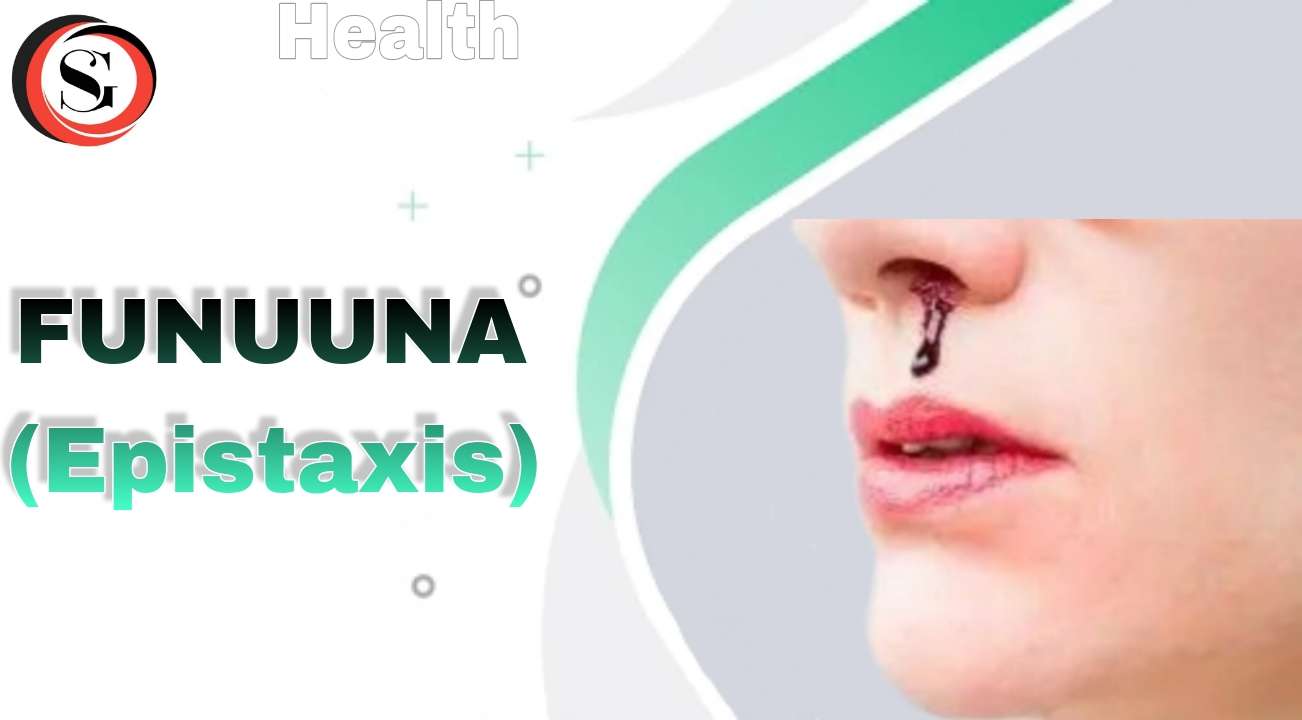Common Causes of Nosebleeds and How to Prevent Them: Nosebleeds, also known as epistaxis, are a common medical condition that can be both alarming and concerning. In most cases, nosebleeds are not serious and can be managed with self-care. However, it is important to understand the common causes of nosebleeds and how to prevent them. In this blog post, we will discuss the various causes of nosebleeds and provide tips on how to reduce your risk of experiencing them.
Nosebleed Disease
Nosebleeds, or epistaxis, can be a concerning medical condition that may cause alarm when they occur. To fully understand this condition, it’s important to have an understanding of nosebleed disease.
Nosebleed disease refers to the underlying conditions or factors that can contribute to nosebleeds. While nosebleeds can happen to anyone, there are certain individuals who may be more prone to experiencing them.
There are several factors that can contribute to nosebleeds, including dry air, frequent nose picking, allergies, trauma or injury to the nose, and high blood pressure. Additionally, certain medications such as blood thinners and nasal decongestants may also increase the risk of nosebleeds.
Understanding nosebleed disease involves recognizing the triggers and potential underlying causes that may be contributing to nosebleeds. By identifying these factors, individuals can take proactive measures to prevent nosebleeds and reduce their frequency.
While nosebleeds are often not serious and can be managed at home, it is always important to consult with a healthcare professional if you experience frequent or severe nosebleeds, if the bleeding does not stop after 20 minutes, or if you have any concerns.
In the following sections, we will explore common causes of nosebleeds, provide tips on how to treat nosebleeds, discuss preventive measures to reduce the risk of future nosebleeds, and provide guidance on when to seek medical help.
Common Causes of Nosebleeds
Nosebleeds can be quite common, but what exactly causes them? Let’s explore some of the most common causes of nosebleeds.
One of the main culprits is dry air. When the air around us becomes dry, it can dry out the inside of our noses as well. This can lead to irritation and ultimately a nosebleed. Dry air is particularly prevalent during the winter months when indoor heating is in full swing.
Another cause of nosebleeds is frequent nose picking. It may be a habit or simply a result of an itchy nose, but picking at your nose can damage the delicate blood vessels inside. This can lead to bleeding.
Allergies can also contribute to nosebleeds. When we have allergies, our bodies release histamines, which can cause nasal congestion and inflammation. The constant blowing of the nose or sneezing can put additional stress on the blood vessels and result in a nosebleed.
Trauma or injury to the nose is another common cause. Whether it’s a fall, a sports accident, or even just accidentally bumping your nose, any impact can cause the blood vessels in your nose to rupture and bleed.
High blood pressure is another factor that can contribute to nosebleeds. When blood pressure is high, it puts extra strain on the blood vessels, making them more susceptible to bleeding.
It’s important to understand the common causes of nosebleeds so that we can take steps to prevent them. In the next sections, we’ll explore how to treat nosebleeds, prevent future occurrences, and when to seek medical help.
How to Treat a Nosebleed
Nosebleeds can be quite common and often occur unexpectedly. While most nosebleeds are not serious, it’s important to know how to treat them properly to minimize discomfort and ensure a swift recovery.
When you first notice a nosebleed, it’s crucial to stay calm. Tilt your head slightly forward to prevent blood from flowing into your throat. Using your thumb and index finger, pinch your nostrils together just below the bony bridge of your nose. Apply gentle pressure for about 10 to 15 minutes. It may feel like a long time, but it’s essential to give the blood vessels enough time to seal and stop bleeding.
During this time, avoid the temptation to check if the bleeding has stopped. Constantly removing your fingers can disrupt the clotting process and prolong the bleeding. Instead, relax and keep applying pressure.
While you wait for the bleeding to stop, breathe through your mouth to avoid sniffing or blowing your nose. This can cause further irritation and potentially dislodge the clot.
After the bleeding has stopped, try not to strain or engage in any vigorous activities that may increase blood flow to your head. Avoid blowing your nose for at least 24 hours to allow the blood vessels to heal.
If the bleeding persists for more than 20 minutes or is accompanied by severe dizziness, chest pain, or difficulty breathing, seek medical attention immediately.
By following these simple steps, you can effectively treat a nosebleed and ensure a speedy recovery. Remember, staying calm and applying consistent pressure are key to stopping the bleeding.
Preventing Future Nosebleeds
Now that we understand the common causes of nosebleeds and how to treat them, let’s talk about preventing future occurrences. While nosebleeds can sometimes be unavoidable, there are several steps you can take to minimize your risk and keep your nose healthy.
- Keep the air moist: Dry air can irritate the delicate blood vessels in your nose, so it’s important to keep the air in your home and workplace moist. Consider using a humidifier, especially during the dry winter months when indoor heating is in full swing. You can also try saline nasal sprays or nasal moisturizing gels to keep your nasal passages hydrated.
- Be gentle with your nose: Avoid aggressive nose picking or blowing your nose forcefully. Instead, use a tissue to gently clean your nostrils. If you have a habit of nose picking, try to find alternative ways to relieve any itching or discomfort, such as using a saline nasal rinse.
- Manage allergies: Allergies can lead to nasal congestion and frequent blowing of the nose, which can put stress on the blood vessels. To minimize your risk of nosebleeds, take steps to manage your allergies, such as using allergy medications or avoiding triggers.
- Protect your nose: If you participate in sports or activities where there is a risk of injury, make sure to wear protective gear, such as a helmet or face guard. By protecting your nose from trauma, you can reduce the chances of nosebleeds.
- Avoid irritants: Certain substances, such as tobacco smoke and strong chemical odors, can irritate your nasal passages and increase the risk of nosebleeds. Try to avoid these irritants whenever possible.
By following these preventive measures, you can significantly reduce the risk of future nosebleeds. However, if you continue to experience frequent or severe nosebleeds, it’s important to consult with a healthcare professional to rule out any underlying conditions or factors that may be contributing to your nosebleeds. Remember, taking proactive steps to care for your nose can help you maintain its health and prevent unnecessary discomfort.
When to Seek Medical Help
When it comes to nosebleeds, it’s essential to know when to seek medical help. While most nosebleeds are not serious and can be managed at home, there are certain situations where medical attention is necessary.
First and foremost, if you experience frequent or recurrent nosebleeds, it’s important to consult with a healthcare professional. This may indicate an underlying condition that needs to be addressed. Additionally, if the bleeding does not stop after applying pressure for 20 minutes or if the bleeding is severe and accompanied by dizziness, chest pain, or difficulty breathing, seek immediate medical attention. These could be signs of a more serious issue that requires prompt intervention.
Furthermore, if you have concerns about your nosebleeds or if you are unsure about how to properly treat them, it is always a good idea to consult with a healthcare professional. They can provide guidance, reassurance, and personalized advice based on your specific situation.
Remember, while nosebleeds are usually harmless, it’s better to err on the side of caution and seek medical help when needed. Your health and well-being should always be the top priority.
THANK YOU
Gadaasite.com
“Let Us Guide Your Home”


